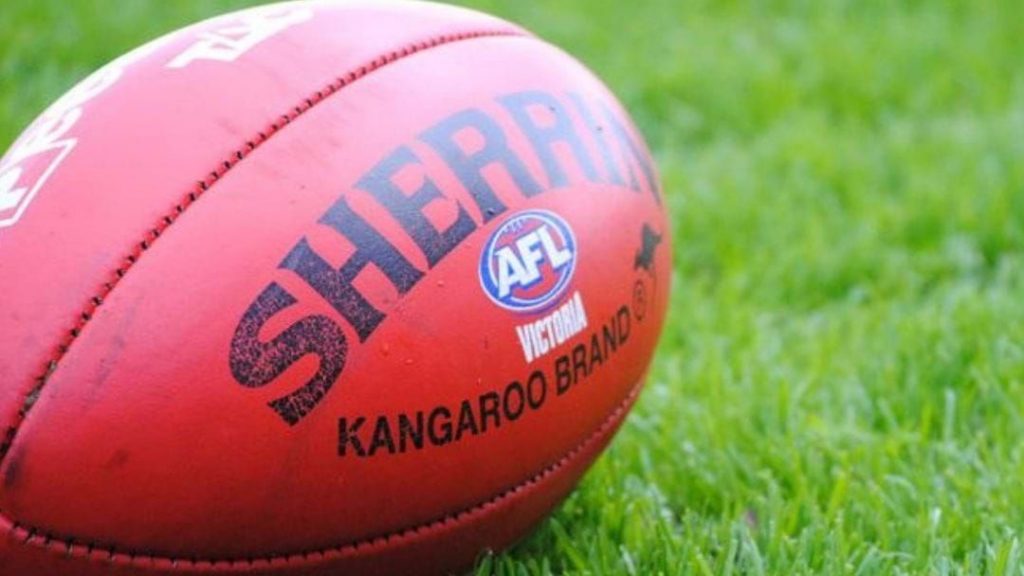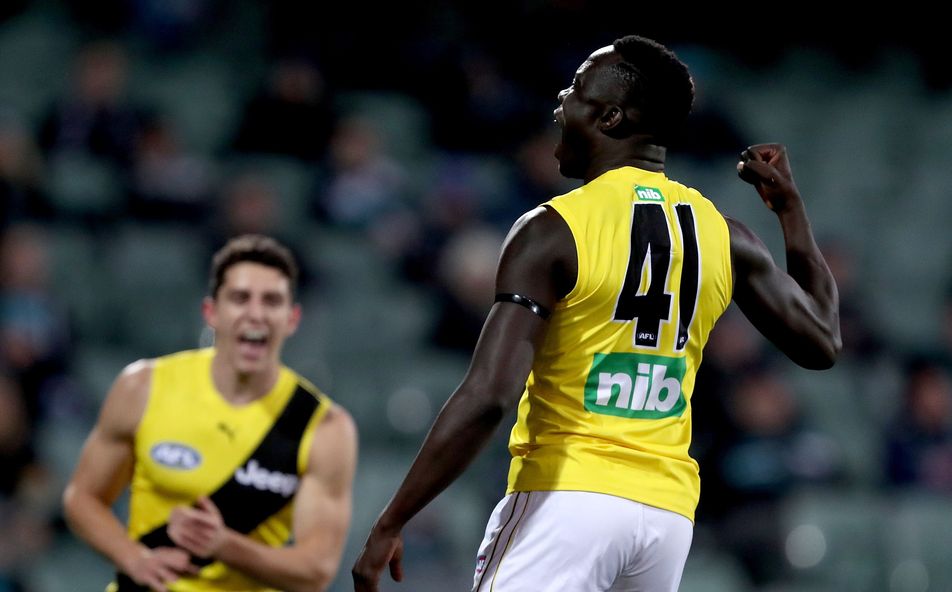The AFL Grand Final is finally rolling around this weekend and it’s a cause for celebration in what’s been a long year. But unfortunately, this season has not set a good example in demonstrating consent off the field. It can sometimes be difficult to focus on the positive aspects of footy when there is a devastating lack of consent in the sport, and it all starts in the clubrooms.

Back in August, when the Tigers beat the Bulldogs, Richmond celebrated in their clubroom post-match. While the team rejoiced in their team song, players Jayden Short and Nick Vlastuin were seen on camera groping teammate Mabior Chol, the same incident reoccurred the following week as Richmond triumphed over the Lions. In clubroom footage, Chol can be seen acting visibly uncomfortable, swatting hands away and then physically distancing himself from his teammates as celebrations wind down (Source: The Guardian). When the footage was leaked, Short and Vlastuin issued a public apology for their actions, Richmond as a club condemned the incident and Chol publicly stated that he had “no issue” with what happened, though he believed it was not a good example to set for young footy fans. However, I wondered, did Chol have the option to say he was affected by the incident, or would that be considered not acting like a team player? After all, the bond between these professional athletes is strong, so strong that the career of a young player like Chol’s could be jeopardised should he turn his back on his fellow teammates and ask for support.

This season, similar incidents have occurred just weeks apart. St Kilda’s Dan Butler was accused of groping fellow teammate Jade Gresham during post-game celebrations and even veteran Richmond player Jack Riewoldt faced accusations of similar behaviour towards teammate Jayden Short post-match. Yes, the same Jayden Short who was filmed groping Mabior Chol. There’s a clear pattern here of locker room banter gone too far. I don’t believe that any of these players are intentionally inflicting sexual harassment on their teammates, but they’re a part of a culture which tells men and boys they have to accept inappropriate and unwanted behaviour to fit in and cannot speak out for their right to consent. There is a power dynamic growing in football, more senior players are exhibiting this behaviour towards junior players as a means of initiation and as they gain more footing, these players pass on the poor behaviour to their juniors (note the link from Riewoldt, to Short, to Chol). While clubs and coaches condemn this behaviour, it seems to be reoccurring on a more regular basis. We often forget that the footy field is an office for professional athletes, and if that sort of behaviour would be criminal in a regular workplace, why should it be any different in the clubrooms?
Former Swans player turned feminist journalist Brandon Jack offered some incredible insight into the issues we are seeing more frequently in footy. In this great podcast, he talks about the pressure that young men often experience, particularly in professional sport and poor behaviour that arises as a result. He suggests that many young players are so often told how important they are, leading to a dangerous arrogance and pecking order in teams. This is what causes the kinds of incidents we’ve seen this season, and this spills over into the outside world. Jack recounts stories of his time as an AFL player, where clubroom banter quickly escalates into talk of sexual conquests and derogatory behaviours. It’s these actions that lead to sexual assault that we’ve seen this season such as the trial of Collingwood player Jordan De Goey and allegations against Sydney player Elijah Taylor (Source: The Australian). There are simply too many incidents and accusations of sexual assault inflicted by professional sports players, and it stems from a toxic culture of hyper-masculinity and a stigma which rejects the notion that consent is an issue in sport.
Football is an integral part of Australian culture. It’s a great way to stay fit and healthy, make lifelong friends and be a part of something great. Being a football player however, does not waive the need for consent. In Australia, footy players are celebrities and their behaviours are so easily transferred into the minds of young people. I think there’s a need for more positive role models in footy, men and women who are smashing it on the field and standing up for safe and inclusive culture in sport.

